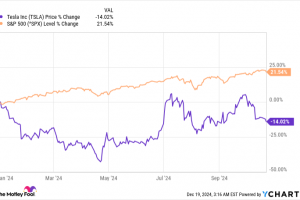
Ronald Reid was the last person you would expect to be a millionaire.
He used safety pins to hold his old coats together and cut his own firewood well into his 90s.
He drove a second-hand Toyota Yaris and resisted new purchases.
To stay updated with top startup investments, sign up for Benzinga’s Startup Investing & Equity Crowdfunding Newsletter
His only real indulgence may have been his daily English muffin and a cup of coffee at the Brattleboro Memorial Hospital in Vermont, where a friend remembered him sitting at the exact same stool every morning.
In his career as a janitor and gas station attendant, he was known as a hard worker.
But friends and family never suspected he was building an $8 million fortune.
Decades of Compounding Put to Work
When he died in June 2014, Reid’s will revealed an $8 million portfolio.
It turned out that Reid, in addition to saving diligently for decades, had also been buying quality, dividend-paying companies that he held for the long term.
Reid owned shares of at least 95 companies at the time of his death — names you’d recognize like Procter & Gamble, JPMorgan Chase & Co. and Johnson & Johnson. Many of these companies increased their dividends every year for decades after he bought them.
There’s no doubt Reid’s investments were savvy. But his results are a testament to his patience more than anything else. They call to mind an old Warren Buffett observation that “the stock market is a device for transferring money from the impatient to the patient.”
You may be thinking that you don’t have decades to wait, as Reid did. But investors today have one advantage he couldn’t dream of.
Giving Ordinary Investors a Shot at Pre-IPO Glory
For 79 years, if you wanted to invest in early-stage companies like Apple Inc. in the 1970s, Meta Platforms Inc.’s Facebook in 2004 or Airbnb Inc. in 2009, you had to be an accredited investor.
The concept came from a 1933 law that created the U.S. Securities and Exchange Commission (SEC), which also held a provision barring any nonfounders or other company insiders from investing in a company…
..






